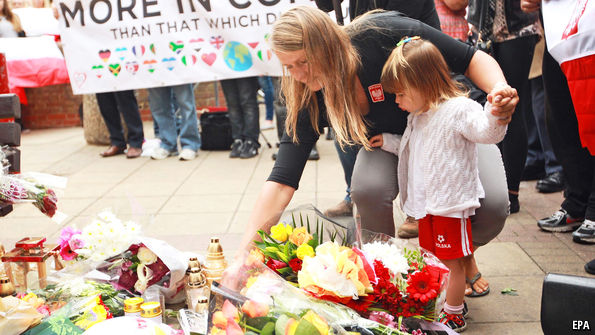A rancid post-referendum rise

TALKING of the fatal assault on Arkadiusz (known as Arek) Jozwik outside a takeaway in Harlow, Essex, on August 27th, Eric Hind flinches at the memory of being shown a photograph of his friend after his death. “Arek’s head was in bits,” he says. “It was really shocking.”
Like thousands of other Poles in Harlow, Mr Hind is reeling from the attack by a gang of about 20 youths on Mr Jozwik. Two more Poles were beaten up outside a pub in the centre of town on September 4th after attending a vigil in his memory. Police are treating both as hate crimes. In an atmosphere of fear, Polish parents worry about what awaits their children as they return to school.
The attacks in Harlow follow a surge in hate crimes around the EU referendum on June 23rd. The National Police Chiefs’ Council says there were 3,076 cases of harassment or violence on June 6th-30th, an increase of 915 on the same period last year. The latest figures, from August 5th-18th, show 2,778 incidents— down on the previous fortnight, but a 14% increase on the same period in 2015.
The Institute of Race Relations (IRR) scours the media for racially motivated attacks; it found 139 during the month after the referendum, up from 21 in the same month last year. Harmit Athwal of the IRR says Brexit has “emboldened” people to express hostility towards immigrants. Last month a UN committee blamed politicians for stirring the sour mood. Phil Allen of Weightmans solicitors says immigration-related harassment in the workplace also spiked after events like the Iraq war in 2003, “but nothing quite as focused as this”.
Poland has dispatched two ministers to Britain, to urge the government to protect Poles. A uniformed Polish police officer will be sent to Harlow for a week to assist local coppers. For now, Mr Hind is praying that Polish youths don’t retaliate, setting off a cycle of violence. But he has no plans to leave Britain: “Two incidents shouldn’t decide our future.”
No hay comentarios.:
Publicar un comentario